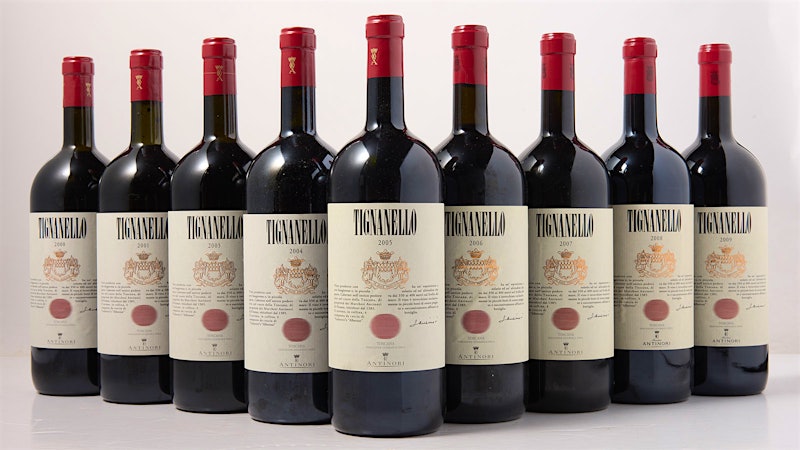Decades of research has linked light to moderate drinking, especially of wine, to a range of health benefits. There’s also strong scientific evidence that any alcohol consumption raises the risk of certain cancers, and that heavy drinking carries serious health risks.
But the reasons why moderate drinking seems to be neutral or beneficial for some people and harmful for others remains a mystery. A new study seeks to answer two pressing questions: How does alcohol affect older adults? And are the health effects of light and moderate drinking different for healthy people vs. people with existing health problems and lower socioeconomic status?
The study, published this week in JAMA Network Open and conducted by researchers based at the Autonomous University of Madrid, Harvard and other institutions, finds that the risks of drinking depend on socioeconomic and health status. Older adults who had existing health problems or were economically vulnerable were at increased risk of dying, especially from cancer, when they drank even small amounts of alcohol. However, adults without those factors were not at an increased risk of death, even when they drank moderately. Drinking mostly wine and drinking only with meals were both associated with reduced risk of alcohol-related health problems.
How Does Alcohol Affect Older Adults?
The study dives into a health paradox. On one hand, as we age, we may be more likely to suffer from the adverse consequences of drinking alcohol. That’s because older adults tend to take more medications (some of which don’t mix well with alcohol) and to suffer from health issues that drinking could worsen.
On the other hand, some research has shown that older adults actually stand to reap the most benefits from moderate drinking, especially protection against cardiovascular disease, diabetes, frailty and other ailments. Compounds found in wine appear to protect against cognitive decline and dementia. Older adults may also enjoy the social benefits of alcohol, whether they drink with their spouse or with friends.
The new study says that older adults with existing socioeconomic and health risks do not see health benefits from drinking—and that they experience increased risk of poor outcomes even with low amounts of consumption. But in healthy drinkers from more affluent areas, those risks do not increase.
Novel Methodology
Researchers examined data for over 135,000 current drinkers over the age of 60 from the U.K. Biobank, a respected, large public health survey of U.K. residents. They compared drinkers based on their average daily amount of drinking, which was defined as occasional (approximately one-fifth of a glass of wine for men and women, or the equivalent of one glass every five days), low risk (up to 1.5 glasses for men and three-quarters of a glass for women), moderate risk (up to 3 glasses for men and 1.5 glasses for women) and high risk (over 3 glasses for men and over 1.5 glasses for women).
Researchers further grouped people based on type of alcohol consumed and whether they drank while eating. If more than 80 percent of alcohol consumed came from one type of beverage, people were classified as having a preference for that beverage. Subjects were divided into people who drank only during meals, only outside of meals or at any time.
Finally, researchers compared people with health and socioeconomic risk factors to people without them. Health-related risk factors were measured using a frailty index that looked at 49 common health problems, including diabetes, cardiovascular disease and cancer. People were classed by socioeconomic risk based on where they lived using the Townsend deprivation index, a socieconomic score comonly used in the U.K. that considers rates of home and car ownership, unemployment and overcrowding sourced from census data.
Drinking Wine with a Meal Appears Lowest Risk
In people with health-related and socioeconomic risk factors, low- and moderate-risk drinking were linked to increased risk of death, particularly from cancer. However, in people without socioeconomic or health-related risk factors, there was no evidence of additional health risks for low and moderate levels of drinking vs. occasional drinking.
Moreover, people with health or socioeconomic risk factors who preferred wine and drank with meals enjoyed reduced risk of death, especially from cancer. The observed effects ranged from a 7 percent reduction in death for people with health problems who drank only during meals to a 17 percent reduction for people with socioeconomic risk factors who drank only during meals.
People who did not have health problems who preferred wine and drank only during meals enjoyed lower risk of death from any cause compared to people with other drinking patterns. Furthermore, drinking wine and drinking during meals reduced or eliminated the alcohol-associated risk of death from cancer, cardiovascular disease and any cause in all categories of drinkers.
Why Is Wine with Meals Best?
The researchers speculate that it may be safer to drink wine during meals thanks to “the effect of healthier lifestyles, slower alcohol absorption, or nonalcoholic components of beverages,” which include the many polyphenols found in wine. People who drink wine are known to have healthier habits, overall, than both nondrinkers and people who drink mostly beer and spirits. They may have “more moderate attitudes” toward drinking alcohol and are more likely to pace themselves at the dinner table, which seems to make drinking less risky in the long run.
The bottom line? While the study doesn’t show overall health benefits to drinking in general, it firmly supports the idea that drinking moderate amounts of wine with food is the safest way to consume alcohol.
Study Strengths and Limitations
Like all observational studies, the new research can’t establish causality. It relied on lifestyle questionnaires, which are not always accurate, and alcohol intake was measured only at the beginning of the study period. Therefore, any change in people’s alcohol consumption over time isn’t reflected in the results. The subjects also lived in the U.K. and were largely white, so the results may not apply to other populations.
The study has several strengths. The researchers controlled for many confounding factors, including sex, ethnicity, smoking and education. Researchers also excluded people who engaged in binge drinking, which is known to have deleterious effects on health, to avoid grouping occasional binge drinkers with low average alcohol intake in the low-risk group, which could have skewed results.
Many alcohol studies don’t look at the effects of different types of alcohol or of drinking with food, but this one focused its analysis on those consumption habits. And while it’s common to control for socioeconomic status and preexisting conditions, the researchers claim that theirs is the first study to examine the differential effects of alcohol depending on those factors.
Avoiding the Sick Quitter Effect
It’s common for studies that link drinking to health benefits to compare drinkers to non-drinkers. Some researchers, particularly those who claim that no level of drinking is safe, have argued that this practice results in skewed data due to what they call “the sick quitter hypothesis,” which posits that many non-drinkers are actually people who used to drink, became ill and stopped consuming alcohol. That comparison, the thinking goes, makes current drinkers seem healthier than they actually are. By comparing apples to apples—drinkers to other drinkers—the researchers hoped to avoid any potential distortion.
Many past studies, however, attempted to minimize the sick quitter effect by excluding former drinkers and people with certain health conditions from the non-drinking dataset. Experts also disagree about how significant the sick quitter phenomenon really is.
The study offers a fascinating example of how novel statistical methods can change our observed associations between alcohol and health. But concrete proof of alcohol’s risks or benefits will depend on a controlled trial—the scientific gold standard and a goal that, so far, remains elusive.
Want to learn more about how wine can be part of a healthy lifestyle? Sign up for Wine Spectator’s free Wine & Healthy Living e-mail newsletter and get the latest health news, feel-good recipes, wellness tips and more delivered straight to your inbox every other week!












